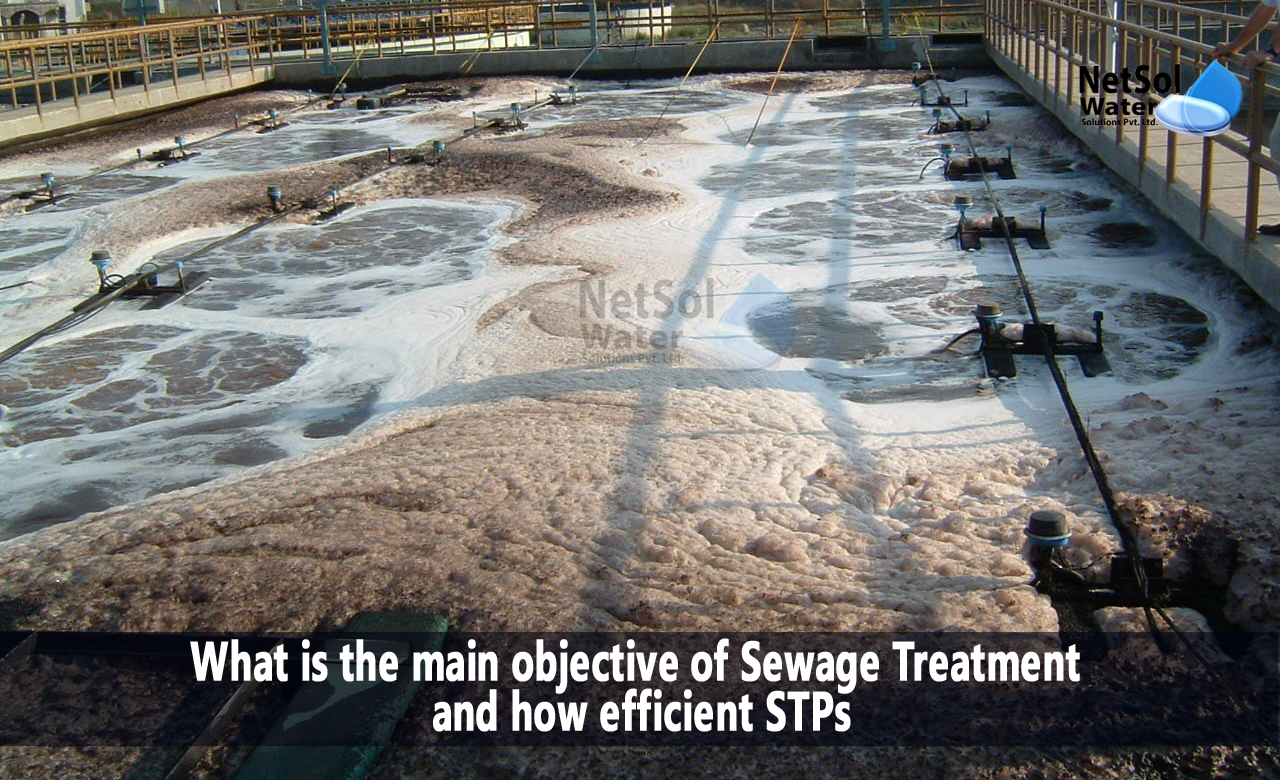What is the main objective of Sewage Treatment and how efficient STP?
Sewage treatment is a vital component of urban infrastructure, aiming to address environmental and public health concerns associated with wastewater disposal. The main objective of sewage treatment is to safely and effectively remove contaminants from wastewater before it is discharged back into the environment. In this section, we'll delve into the primary goals of sewage treatment and assess the efficiency of sewage treatment plants (STPs) in India.
The Main Objective of Sewage Treatment
Protecting Public Health: One of the foremost objectives of sewage treatment is to safeguard public health. Wastewater often contains harmful pathogens, such as bacteria and viruses, which can cause diseases if released into the environment or returned to water sources used for drinking or recreational purposes. Effective treatment processes help remove these pathogens, reducing the risk of waterborne illnesses.
Environmental Preservation: Sewage treatment plays a crucial role in protecting the environment. Untreated wastewater can contaminate water bodies, harm aquatic life, and disrupt ecosystems. The removal of pollutants through treatment processes ensures that discharged water is less harmful to aquatic habitats and biodiversity.
Water Resource Conservation: Treating sewage helps conserve valuable water resources. In many areas, treated wastewater, known as reclaimed or recycled water, can be safely reused for non-potable purposes like irrigation, industrial processes, or cooling systems. This reduces the demand for freshwater sources and eases the strain on water supplies.
Pollution Reduction: Sewage treatment aims to reduce the discharge of pollutants into the environment. These pollutants include organic matter, nutrients (such as nitrogen and phosphorus), heavy metals, and chemicals. By removing or significantly reducing these contaminants, treatment plants mitigate water pollution and its associated adverse effects.
Efficiency of Sewage Treatment Plants in India
Sewage treatment in India is a complex and multifaceted challenge due to rapid urbanisation, population growth, and the presence of numerous industrial sources. The efficiency of STPs varies across the country, with several factors influencing their performance:
Infrastructure and Technology: The efficiency of STPs depends on the infrastructure and technology used. Modern and well-maintained plants with advanced treatment processes tend to perform better.
Capacity and Overload: Many STPs in India are operating beyond their designed capacity, leading to reduced efficiency. Overloaded plants struggle to treat incoming sewage adequately.
Maintenance and Operation: Adequate maintenance and skilled operation are critical for STP efficiency. Shortages of trained personnel can hinder plant performance.
Industrial Discharges: The presence of industrial discharges in sewage can challenge treatment processes. Untreated industrial wastewater may contain chemicals and pollutants that are difficult to remove.
Investment and Funding: Adequate investment in sewage treatment infrastructure is essential for efficiency. Some regions face funding constraints that limit the development and maintenance of treatment facilities.
Regulatory Compliance: Effective enforcement of regulations and compliance by authorities is necessary to ensure that STPs meet prescribed standards.
While India has made significant strides in expanding sewage treatment infrastructure in recent years, challenges persist. The government's initiatives, such as the Atal Mission for Rejuvenation and Urban Transformation (AMRUT) and the Namami Gange program, aim to improve the efficiency of STPs and address the challenges associated with sewage treatment in the country.
Conclusion
The main objective of sewage treatment is to protect public health, preserve the environment, conserve water resources, and reduce pollution. While sewage treatment plants in India have achieved these objectives, there is still work to be done to enhance their efficiency and ensure that treated wastewater meets stringent quality standards. A collaborative effort involving government agencies, communities, and industries is essential to address the evolving challenges of sewage treatment and secure a cleaner, healthier, and more sustainable future for India.
Netsol Water is Greater Noida-based leading water & wastewater treatment plant manufacturer. We are industry's most demanding company based on client review and work quality. We are known as best commercial RO plant manufacturers, industrial RO plant manufacturer, sewage treatment plant manufacturer, Water Softener Plant Manufacturers and effluent treatment plant manufacturers. Apart from this 24x7 customer support is our USP. Call on +91-9650608473, or write us at enquiry@netsolwater.com for any support, inquiry or product-purchase related query.



